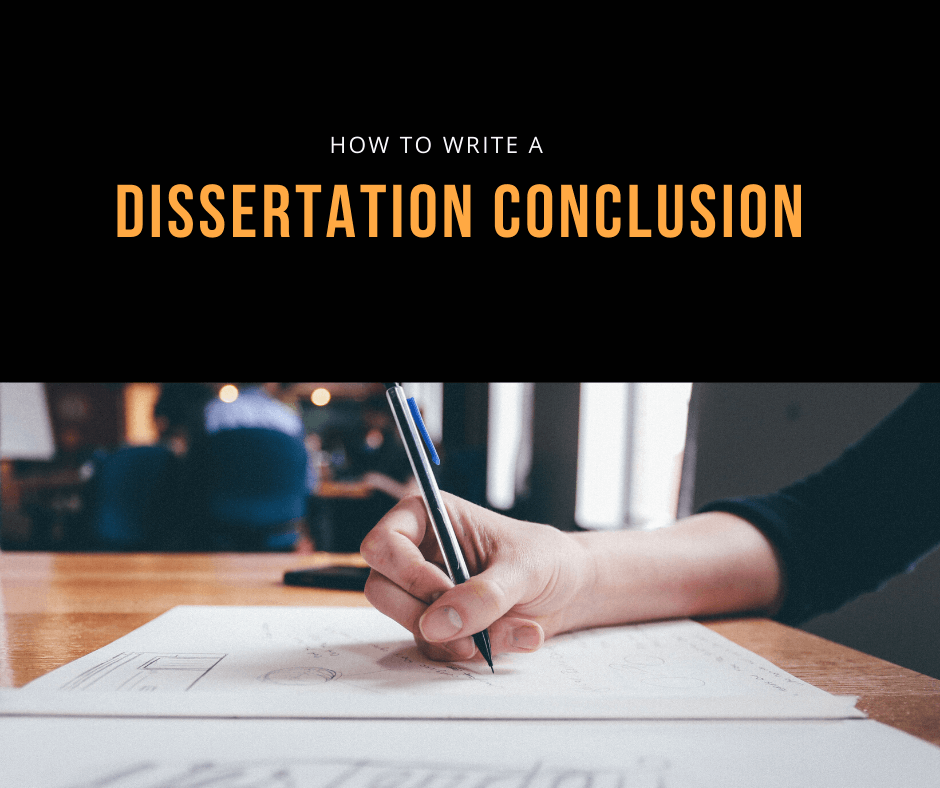![]()
Just how long should a literature review be in a dissertation? Again, it varies. You have to include all relevant research studies. Focus on that rather than on length. These can run from 20-30 pages and include from 20-30 resources.
Most students have had experience writing conclusion for essays and papers. But understanding how to write a conclusion for a dissertation will require a different approach. Most dissertation conclusions are highly organized into specific sections.
Here is the thing about the literature review. Many students need to complete it in full before they can really refine their research methodology
The obvious short answer is, it varies. But, in general, it depends upon these factors:
The Design and Methodology Chapter

The biggest issues students have with this chapter are determining which formulae to use and plugging the numbers in correctly, especially if they are not STEM majors. Of all chapters in a dissertation, this is the one for which students most commonly seek help. And hiring a statistician to crunch these numbers is the best way to ensure that it is done correctly.
Second, you must identify any constraints or nuisance factors within your research, so that future researchers can account for them as well.
In general, and based upon actual data, the answer to how long it takes to write a dissertation is 12-18 months, but perhaps more, depending on the timeline to collect your research data.

You already have the dissertation proposal, which is a preliminary outline for the actual dissertation. However, you still need a more detailed outline for the large project. Did the research stage lead you in an unexpected direction? Make sure to include the new points in your outline.
The dissertation research stage is going to determine the overall development of your project. It has to be methodical and effective, since you don't want to waste your time reading and analyzing irrelevant resources. Here are a few tips that will help you go through it:
If you notice that you're struggling through the stages of editing and proofreading, you should know you're not the only one with such problem. You are too attached to this project and it's difficult for you to see the flaws in it. That's why it's recommended for students to use an proofreading service that will bring their projects to perfection. This is a smart investment that will save you from embarrassment after all that effort and stress you went through.
There is a substantial difference between editing and proofreading: editing is focused on the essence, and proofreading is focused on the form of the paper. You need to deal with the essence first, since it would be silly to proofread the dissertation to perfection and then start getting rid of unnecessary parts and adding more details.
Structure of the dissertation proposal

Pay attention to the logical connection between each argument. Are there any gaps in information? Fill them in with more details you collected through the research stage. Maybe you got carried away with the explanations at some point? Make sure to reduce the volume of those parts and clarify them as much as possible. The point is not in quantity
This is the most important stage in the whole process of dissertation writing, since it showcases your intellectual capacity. At this point, you'll restate the research questions and you will discuss the results you found, explaining the direction they led you to. In other words, you'll answer those questions.
If you want to make the proposal convincing, its format has to be clean and easy to follow. Here are the points you should include in the proposal:
- Procrastination. They think there is plenty of time to work on the project, and they keep delaying the starting point. This is a big problem, since these students usually find themselves in frantic stress when the deadline approaches. Procrastination is one of the first signs that you need academic writing help.
- Lack of research. Students who don't have enough experience with academic writing think they just need to collect few relevant resources and extract relevant quotes from them. That's far from the truth. You need to analyze those materials thoroughly and discuss them in the paper.
- Lack of writing skills. The dissertation paper should follow the strict rules of academic writing. You can choose unusual dissertation titles, but you should write in proper form, style, and language

Similarly, the use of software and other technology tools can be a perennial problem for doctoral students. While many students are familiar with word processing software such as Microsoft Word, a surprising number do not know some of the arcane formatting rules.
The writing process will not be an easy process
As aforementioned, the word dissertation finds its roots in the Latin word dissertare, which means to discuss. It also borrows from the Latin word disserere, meaning to examine and discuss (Online Etymology Dictionary).
A dissertation is the pinnacle of graduate students’ hard work and is regarded as the culmination of their years of research and scholarly work. It is a collection of ideas, theories, and research, that are packaged in a single project, ready for evaluation and marking. As such, dissertations are often treated as the first real test of students’ report writing skills (Stephenson & Bridgen, 2008) and a rare opportunity to hone their integral research and critical thinking skills.
Start Your Dissertation Early

In some cases, it will be convenient to add charts, tables, and graphs to the results section. However, if they are redundant or are not directly related to your research question do not add them here. Instead, find space for them in the appendix.
The research topic you pick is basically the foundation of your study, and it can dictate the success or failure of your project. In one way or the other, doctoral students are inspired by the work of professional researchers, when researching a topic. As a result, they end up picking a broad topic with an aim to emulate or even outwit the work of other scholars.
People assume that writing a dissertation is a difficult task to accomplish. The truth is, the process is time-consuming, but if you do things right, it is really not a hard nut to crack. The key to success is to understand the dissertation format, avoid the common mistakes, and prepare adequately for the lengthy process.
- Explore their area of interest in depth.
- Demonstrate accuracy and skills in investigating and discussing a problem.
- Manage a critical project from the beginning to the end, most probably, for the first time.
- Apply the skills they have learned in college in a more practical way.
- Experience the process of producing knowledge.

The abstract is one of the most important parts of a dissertation because it helps to introduce the whole argument in the dissertation to the reader. Therefore, you have to get it right. Using our guide and expert tips, you can now get started with crafting a winning dissertation abstract. But even with the guide and a good dissertation abstract example, many students still find it a challenge. Well, do not get stuck or stressed about writing a dissertation abstract because help is only a click away. Seek help from professional dissertation writers.
Note that when writing the abstract, you can either use past or present tense. See the two examples below, showing two things: how not to write it, and how to write it.
A dissertation abstract is a crucial part of this complex type of academic paper. Coming at the start of the dissertation, an abstract is a short description (call it summary) of your work that helps to get the reader up to speed on the aim and outcome of the study.
Read other dissertation abstract examples to learn how other writers did their abstracts. Take a keen interest in how another top writer summarized his work in the abstract example dissertation. Then, try to make a better abstract for your dissertation.
Abstract Checklist
When it comes to the results, you need to summarize them. You can do this part in the past simple tense or present tense. See the example below:
The next item on writing an abstract for a dissertation is indicating the research methods that you used. Indeed, you should make this as straightforward as possible. Note that you should not go into details of analyzing the validity of the study or obstacles. See the examples below:
His teachings have endured, and in addition to providing spiritual uplifting, can be used in the context of encouraging emotional and mental stability. This study will review original writings of Osho, using Chaudhuri’s writings about depression, suffering and death as a framework. Its intent is to provide both academic information and practical guidance.
Once done with the dissertation, the abstract should be on its own page, immediately after the dissertation title page, and acknowledgements, but prior to the table of content. So, how do you write an abstract?

The person who is reading your dissertation conclusion has come a long way from the first chapter. Before finishing reading the study, this is a great opportunity to remind him/her why you started working on the study in the first place. Well, go a step further and demonstrate how articulately the results from the study synched with your main expectations. So, summarize the study coherently, showing the entire journey that was followed during the study.
Here, it is important to be factual. Remember that when you call for additional studies, a question about it could be thrown your way during the thesis defense.
Although you are likely to have highlighted the recommendations when writing the discussions, here is another opportunity to provide further elaboration. So, how do you do it? Here are some examples:
But you should note that empirical scientific studies, which are shorter, rock shorter conclusions compared to those of studies in humanities. You might want to check a dissertation conclusion sample from a top student or expert to see how he/she did the conclusion.
Step 1: Start by Answering the Thesis Questions
Taking a closer look, you might notice that a dissertation conclusion and discussion have some similar components. Indeed, some universities recommend combining the conclusion and discussion.
By evaluating the fast-changing representation of migration and Italy border policy in the past 15 years, this demonstrated that media discourse can help to shape the decision making in a country.
When thinking of how to write thesis conclusion, it is important to make it easy-to-read, concise, and fun to read. Your goal should be putting across the argument that your dissertation brought out. Although you will most probably have handled the introduction, literature review, methodology, and discussion of the dissertation, the importance of the dissertation conclusion cannot be underestimated.
To make concluding your thesis easy and direct, you should follow these four steps. Since you are concluding, it is important to have the arguments clear both in your mind and the thesis. Here is a step-by-step guide on how to conclude a thesis.

Set a timeline and stick to it. You need to find and read adequate resources so that you can fully understand your research topic. However, keep in mind that you will have to end your research and reading start writing your paper at one point.
- Choose an appropriate dissertation title, theme and questions – choose a title that will let the reader know what your paper entails. The title should have few words that make it sound unique, reasonable and valuable. Choose questions that are not very complex. Those that can easily lead you to a testable hypothesis that you can produce strong arguments on. Moreover, highlight the research aim, which mainly reflects the context, outcomes, and significant elements of the research methodology chosen.
- Objectives-have a target of about at least 5 objectives. Avoid being broad at this point since it might make your plan seem like it has no focus.
- Literature – list a few specific references in this section. You can also name your areas of study, school of thought, and alternative sources of information you will use during your research.
- This is a significant section of your paper. In this section, you need to expound on your research questions and make sure you have clearly outlined your area of research.
- Methodology- Explain the technique you will use to collect your data. The method you choose depends on whether your dissertation is empirical (information gathered through questionnaires or other techniques) or non-empirical (information from projects that have already been published).
- Potential results-describe what your expectations are upon completing your research and doing the analysis.
- Time schedule – prepare a time plan that shows how you intend to spend time on every section of your dissertation so that you can complete it on time.
This section of the paper shows how you searched for your resources and the techniques you will use to implement your outcomes. If your research is qualitative, you will need to reveal the research questions, participants, data gathering method and data analysis process. If your research is quantitative, emphasize on the research questions, hypotheses, details concerning the sample and the population, instrumentation, data collection and analysis
After you have completed writing, take a few days of break and come back to edit your paper. Focus on the logical link between every argument. Identify if there are any gaps in the content. If any, fill them with relevant information that you gathered during the research stage. If there are areas you have overemphasized, reduce their volumes. Always keep in mind that its all about quality and clarity.
Step 2: Write a winning dissertation proposal

This is a more precise paper than the final dissertation. According to statisticsguruonline.com, it is an integral part since it is at this point when you will choose your dissertation title and define the key concept. You will also think of crucial questions, find answers to the problems, debate the cases of your thesis, and set up a strategy for gathering details and writing your paper. It is crucial to make your proposal convincing. Therefore, you have to ensure that the format is flawless and easy to follow. Some of the crucial tips you should consider when writing a proposal are as follows:
Review your research process and note down what you have concluded.
- Be concise
Prepare a basic outline to make it easy for you to start writing. After you are done writing your outline. Keep off any distractions, observe your timeline and start writing your dissertation following the outline
